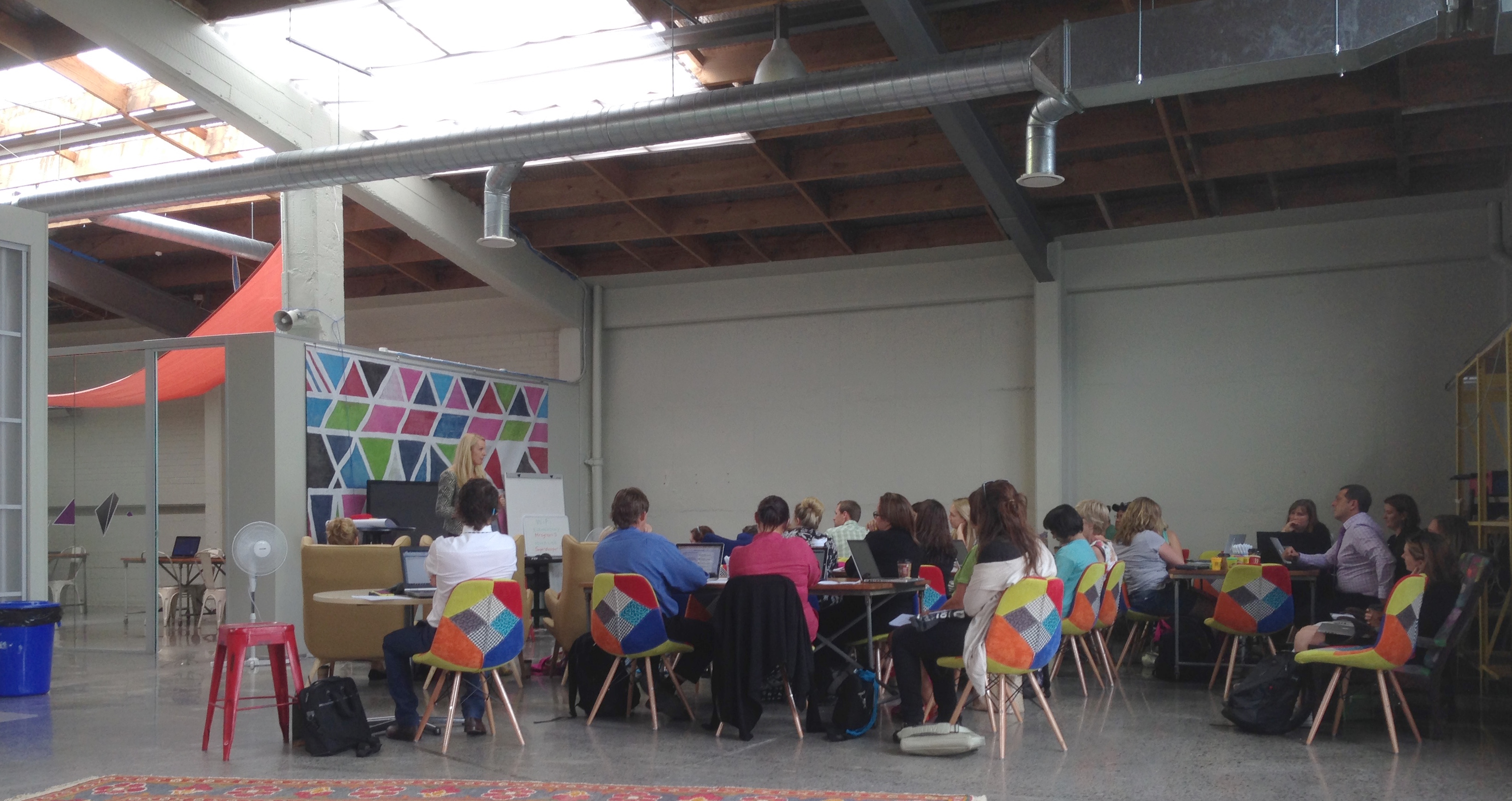We won’t teach you how to use technology.
Frances Valintine, CEO of The Mind Lab by Unitec, is opening a postgraduate certificate course by surprising her audience. However, she strongly encourages New Zealand teachers to bring “more technology-based practices into classroom.” The course is The Mind Lab’s effort to enhance digital literacy capability and implementation of contemporary practice in the teaching profession.
Originally the idea of The Mind Lab was to welcome children to innovation camps and programming workshops. Together The Mind Lab and Unitec, New Zealand’s largest higher education institute of technology, has started to offer teachers an applied, progressive and blended postgraduate certificate specialising in digital and collaborative learning. It is a unique education collaboration between a private company and a public education provider. The programme introduces new teaching methodologies for active class engagement, practical knowledge of digital tools and exposure to emerging pedagogical practices that enhance the learning experience for today’s learner.
The beginning has been successful in terms of awards and media coverage. New branches have been opened in Gisborne and Wellington. Teacher scholarships are also available from the NEXT Foundation. The Certificate course runs over 32 weeks. It features collaborative sessions – from 4pm to 8pm – and online learning. The weekly themes include e.g. Active Learning, 21st Century Skills, Inquiry Led Learning, Connected Learning, 3D modelling – and not to forget Flipped Classroom and Design Thinking.
In March I was fortunate to visit The Mind Lab in Auckland. While following and assisting postgraduate courses, some ideas developed, too, in terms of connecting more research to The Mind Lab, based on my experience of research-based teacher education in the Finnish context.
In the current research plan, naturally the accountability issues are essential. However, determining teacher’s performance after the certificate by using students’ standardized knowledge tests as the main means of accountability would be problematic. My own ideas would include longterm consequences approach (see Kerosuo et al. 2005), more intelligent ideas around accountability, as Pasi Sahlberg would put it.
[E]ducation policies should be directed at promoting more intelligent forms of accountability to meet external accountability demands and to encourage cooperation rather than competition among students, teachers and schools. (Sahlberg 2010)
The same applies to pre-service teacher education and in-service training. The change is often unforeseeable and cannot be planned in advance (Pettigrew 1995). For a while, the problem in technology-enhanced learning and education has been misguided research. If our aims are larger than students’ academic achievements (as in 21st century learning they are), we should not measure the same as we have done always. “Different means, if they are powerful, serve different rather than same ends” (Salomon 2002).
Another interesting aspect are the results in OECD/PISA comparison. Students’ PISA test scores in reading, mathematics and science can even decrease with the intensity of computer use for activities related with school curricula (Biagi & Loi 2012). This means it is very difficult to find evidence to support the use of digital pedagogies if we only measure students’ academic achievements. That is why I hope The Mind Lab and Unitec will take as brave steps in research as it has done in postgraduate models and teachers’ in-service training.
In any case, the whole concept just works! All the teachers who have participated the courses are recommending this programme for their colleagues. As we are in Finland struggling with in-service training system that is not systematic, with few changes in actual school culture, new approaches to support teachers’ professional learning are welcomed. The plans of Ministry of Education and universities to initiate new specialisation programmes offering at least 30 credits for higher degree graduates can be seen as a similar progress that has taken place in New Zealand. Hopefully we will be able to learn from the experience The Mind Lab has gained!
__
A better understanding of the postgraduate certificate in applied practice is possible through Raewyn Donnell’s blog post. She was one of the first 100 teachers – this March 250 new teachers started.

